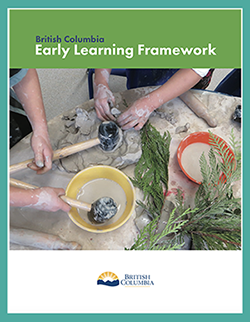Module 1: The Principles of Early Learning
Supporting the Vision
Read the descriptions below. You will see how each component can support the vision of respectfully living and learning together.
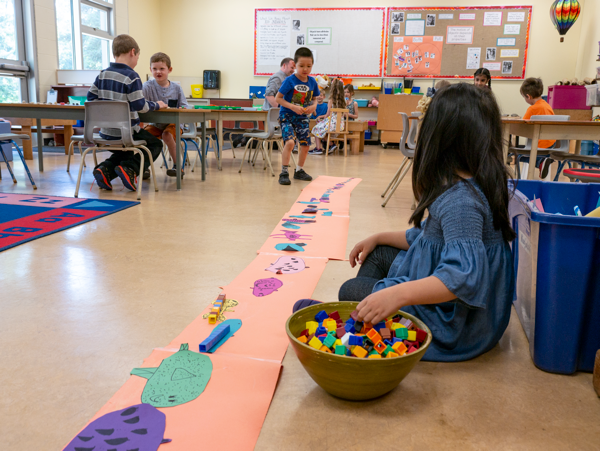
Early care and learning settings and schools become places where children and educators can explore many ways of learning. These settings also become places where members of the community can share or discuss
- Their values about knowledge and education
- How to live and learn together meaningfully, locally, and respectfully
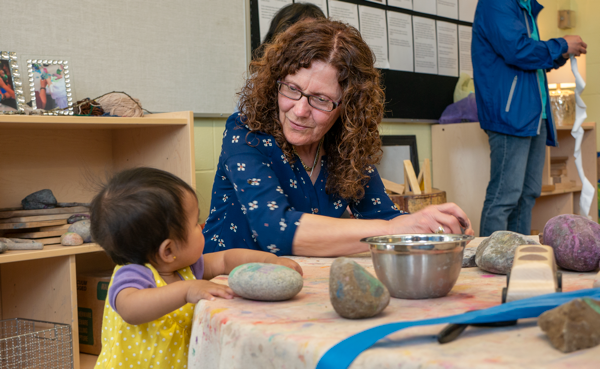
Children are
- Capable and full of potential
- Strong, competent, and unique
- Listened to and valued for their ideas and knowledge
- Able to experiment, investigate, and inquire in ways that are meaningful to them
- Able to enrich/deepen their relationships with place, land, and community
- Secure in their sense of belonging
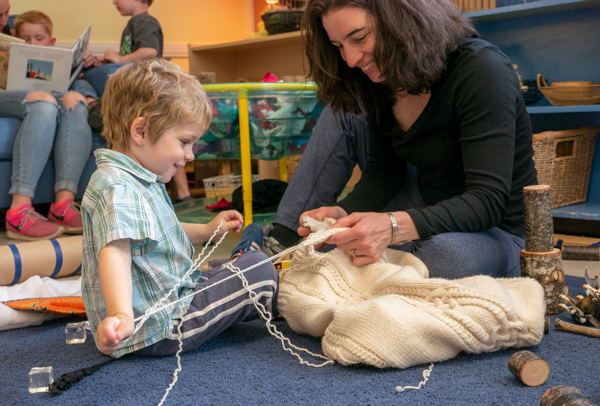
Families have the most important role in supporting their children’s well-being. Families are not all the same. In many families, parents are the primary caregivers. However, there can be a variety of caregiver situations. Caregivers might include
- Grandparents
- Older siblings
- Other relatives
- Step families
- Adoptive families
- Foster families
Families are
- The first teachers of children
- Knowledge keepers
- Responsible for teaching children about their cultural traditions and languages
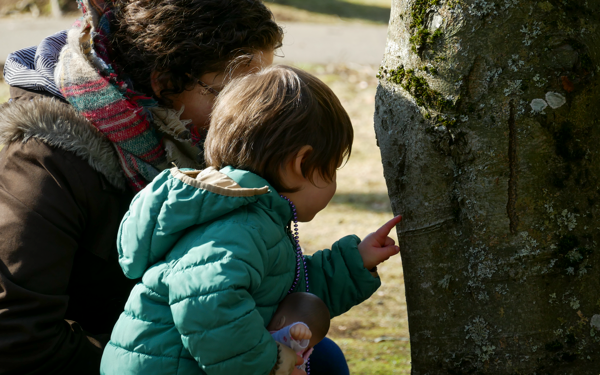
Educators are encouraged to
- Be respectful
- Include inquiry
- Communicate with other educators
- Communicate with families and the community
- Collaborate with those who share, teach, and join early learning communities
- Honour community Elders and learn from them
- Promote reconciliation, healing, and justice
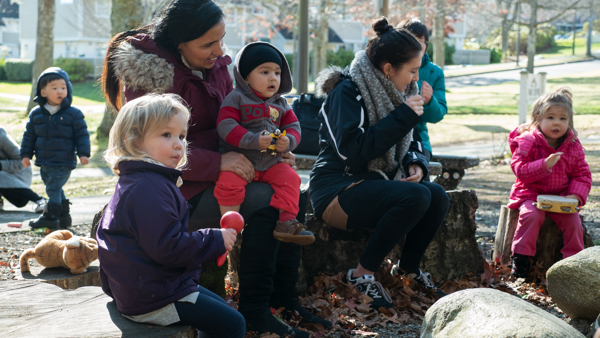
Communities and governments are encouraged to work together in order to
- Understand, value, and promote early learning
- Make it clear that children are valued members of the community, and that they contribute to society
- Create spaces where
- children are proud of their languages and cultures
- those languages and cultures are cultivated
- children can take up social and traditional responsibilities
- Support children and families
